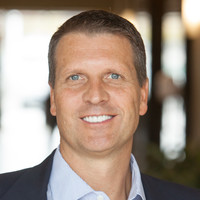It’s hard in 2016 to imagine one without the other. And just as the New York City business mogul-turned-GOP presidential nominee has upended the 2016 election, Donald Trump’s temerity in tweet storms has rocked political convention, rewritten the rules and roles of the political press and resigned the Republican Party into an existential fight for its future.
Pretty big stuff just 140 characters at a time. Yes, it’s safe to call this the Twitter election. Neither voters nor the media will soon forget how politicians on both sides mastered the social media platform this cycle to either drive a narrative or switch the subject — sometimes during a live debate. Bernie Sanders cultivated a liberal revolution weary of wealth inequality. Hillary Clinton announced her vice presidential running mate, Virginia Senator Tim Kaine via Twitter. Cable news outlets took cues nightly from that day’s social media slugfest. Slanderous posts and tweets cost campaign operatives their jobs. And politicos everywhere thumbed their Twitter feeds day and night to see if Trump would insult his way into or out of the polling lead.
Trump often boasts of his 20 million social media followers, 11.2 million on Twitter and another 9 million on Facebook. It represents, he says, a way to circumvent the traditional press corps and deliver his nationalist message directly to his supporters. It also represents something new for presidential politics — a way to control or counter the day’s news cycle through a friendly flurry of social media retweets and shares. Call it grassroots organizing in the 21st century app economy. So reliant is Trump on Twitter that he has eschewed data driven get-out-the-vote efforts — or any real so-called ground game — in favor of large rallies and late-night tweets intended to dominate the debate.
But while the marriage of election-year politics and social media has been a universal boon for ratings — from Breitbart.com and Fox News to NPR and CNN — it has not come without controversy. Facebook was scolded by conservatives for leaving right-leaning news stories out of its trending topics headlines, a move criticized for bias and its subtle attempt to manipulate voters. Facebook founder and CEO Mark Zuckerberg later met with Republican insiders vowing to end any political favoritism on the popular social media platform. In the aftermath, The Wall Street Journal launched a feature that allows people to view “liberal Facebook” and “conservative Facebook” side by side.
Regardless of partisan preference, Twitter has also played host to old-fashioned scandal as the general election draws nearer. In August alone, a pastor and Trump supporter tweeted a picture of Clinton in blackface that was later deleted. And former New York City congressman and one-time mayoral hopeful Anthony Weiner — husband to close Clinton aide Huma Adedin — was caught, via Twitter, sexting pictures of himself yet again. Weiner, at long last, deleted his Twitter account.
No matter the result November 8, few expect Trump to do the same. After all, this election, we can’t stop scrolling. And Trump knows it.







